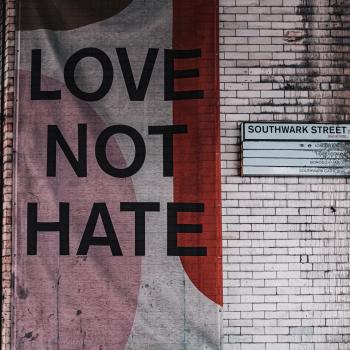We have a difficult time with out emotions. How much should we express them? When? Some families grow up strictly repressing emotions, discouraging any “unseemly” displays. Others seem to thrive on emotions, encouraging one another to worship how one feels, following its beck and call.
In other words, we mess up on both ends of the spectrum.
Emotions are not a bad thing. They are, generally, neutral – at least when it comes to value. What makes an emotion valuable or harmful is the way in which we respond and express those emotions. When we do it poorly, one of the consequences is damage to our relationships. Here are five ways we allow emotion to hurt our relationships and ways we can both avoid and limit the damage.
1) Un-named

An unnamed emotion can damage your relationship. I’m not talking about calling anger “anger” and sadness “sadness”, although that is a part of it. What I really mean is the lack of ability to name the source of our feelings.
Emotions are an alarm clock. The wires that make them work are our values. We do not feel emotions because of people or circumstances. We feel them because of what we value and the way it is represented or misrepresented.
If we do not know how to name the values that trigger our emotions, we will treat our emotions at face-value, which is not helpful. If you do not know why you feel what you feel, you are destined to interact with your emotions in a harmful way. And that, in turn, will have negative consequences for your relationships.
2) Expectation
When we take our emotions at face value, we carry superficial expectations about the way others will respond to our emotions. Based on our past experiences, we expect people to either coddle to our emotions or ignore them. We either expect the people we are in relationship with to “do better” than those who have hurt us or to do the very same thing our experienced patterns have taught us to anticipate. Sometimes we find a way to expect both.
The result is we hold the people we are in relationship with hostage to our expectations. We are “disappointed” (at the very least) and “appalled” (at the very worst) when others do not respond the way we think they should. This can come in many forms – we expect them to reinforce our emotion or rescue us from them, etc. It puts a pressure on others to take responsibility for our well-being – an expectation based on a past they were likely not a part of.











